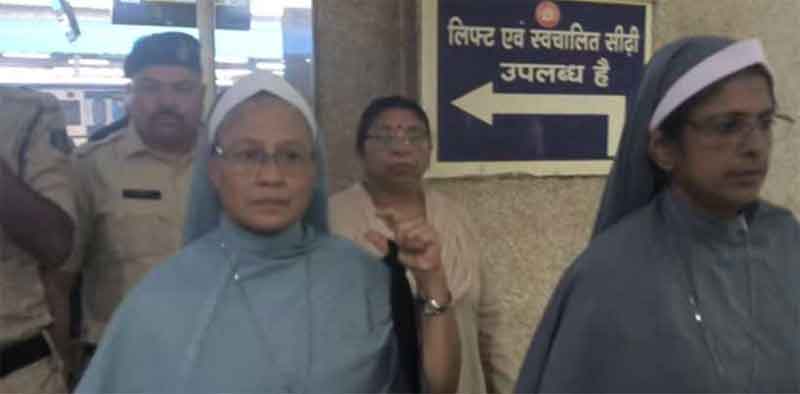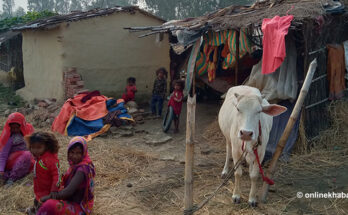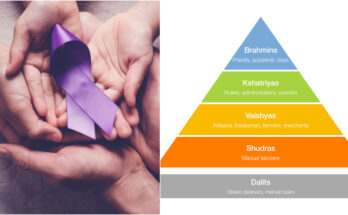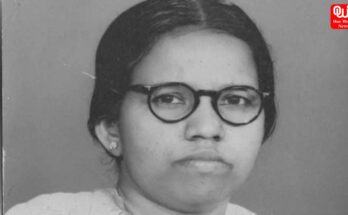
On July 26, 2025, two Catholic nuns – Sister Preeti Mary and Sister Vandana Francis of the Assisi Sisters of Mary Immaculate (ASMI) – were arrested at Durg Railway Station in Chhattisgarh. The charges? Alleged forced conversions and human trafficking. The real crime? Their identity as Christian religious workers in an increasingly intolerant India.
The arrest sparked an immediate public outcry. Within 48 hours, over 70,000 people had signed a petition demanding their release and condemning the growing persecution of Christians in India. The incident was not isolated — it is symptomatic of a wider trend: a surge in hate-driven, state-tolerated aggression toward Christian minorities.
Manufactured Accusations and the Abuse of Law
Sisters Preeti and Vandana were booked under Section 143 of the Bharatiya Nyaya Sanhita (BNS) for “unlawful assembly,” and Section 4 of the Chhattisgarh Religious Freedom Act, 1968, a law frequently invoked against Christians accused — often without evidence — of “forced conversions.”
These laws are vague, overbroad, and ripe for abuse. According to the Evangelical Fellowship of India (EFI), over 600 cases of violence or intimidation against Christians were reported in 2023 alone — the highest in recent history. ⁽¹⁾ Many of these were linked to local vigilante groups emboldened by the rise of right-wing Hindutva ideology.
This particular case echoes the 2017 incident in Madhya Pradesh, where another group of Catholic nuns was falsely accused of conversion and detained by police during a train journey. They were later released without charges — but the trauma and reputational damage lingered.
A Broader Climate of Religious Intolerance
India’s constitutional promise of secularism and religious freedom is increasingly undermined by a culture of hyper-nationalism fused with religious majoritarianism. Christians, who make up about 2.3% of India’s population, are frequently branded as “outsiders” or “conspirators” — their educational institutions, hospitals, and humanitarian work dismissed as veiled proselytism.
In reality, Christian missions have been at the forefront of service to India’s poor — especially Dalits, Adivasis, and marginalised rural communities. Their work is often where the state has failed.
Yet they are now routinely harassed, beaten, arrested, or shamed on national media. In December 2021, a Christian school in Madhya Pradesh was attacked by a mob of 500 men, incited by online rumours about conversions. ⁽²⁾ Police were present but did little to stop the violence.
According to Open Doors USA, India ranks as the 10th most dangerous country in the world to be a Christian. ⁽³⁾ Reports from Human Rights Watch and Amnesty International echo similar findings: religious minorities are being systematically targeted under the current government’s watch.
Legal Cover for Communal Impunity
Anti-conversion laws exist in at least 11 Indian states, including Chhattisgarh, Uttar Pradesh, and Madhya Pradesh. They are framed to “protect” against coercion — but in practice, they criminalise voluntary faith expression and enable vigilante justice.
Once accused under these laws, Christian leaders face arbitrary detention, media defamation, and legal intimidation — even if no convictions follow. There is often no credible evidence, just accusations supported by communal groups with political links.
These laws have a chilling effect: Pastors cancel services, families are afraid to gather, and Christian charities scale back work in tribal areas where accusations are most common.
What the Petition Represents
The petition, initiated by activist Sathyam Jayathae on Change.org, isn’t just about freeing two nuns. It is a collective voice calling for the restoration of constitutional protections. It reminds India — and the world — that religious freedom is not a favour granted by the state, but a non-negotiable right.
The arrest of Sisters Preeti and Vandana is deeply symbolic. It reflects how even those engaged in peace-building and service are no longer safe. The silence from top political leaders — including the Ministry of Home Affairs and the National Commission for Minorities — is deafening.
A Call for National and International Response
India must be reminded of its obligations — not only to its own Constitution but to international conventions on human rights and religious freedom, including:
- The International Covenant on Civil and Political Rights (ICCPR)
- The Universal Declaration of Human Rights (UDHR)
- The United Nations Declaration on the Elimination of All Forms of Intolerance and Discrimination Based on Religion or Belief
Silence or neutrality in the face of such persecution emboldens the perpetrators. It is time for the National Human Rights Commission, courts, and international allies to demand transparency, repeal misused laws, and protect religious minorities.
Time to Reclaim the Soul of Secular India
We are witnessing not an aberration, but a pattern — one where Christians are surveilled, demonised, and detained simply for practicing or sharing their faith.
The campaign to “defend Hinduism” has mutated into an agenda that undermines pluralism and corrodes India’s secular ethos. If missionaries, nuns, and social workers are treated as criminals, what message does it send to the rest of India’s religious minorities?
The persecution must end — not for the sake of Christians alone, but to preserve the very idea of India as envisioned in the freedom movement: inclusive, just, and respectful of every belief. Justice for Preeti Mary and Vandana Francis must be the beginning of a larger reckoning — and a national awakening.
Source: Counter Currents



